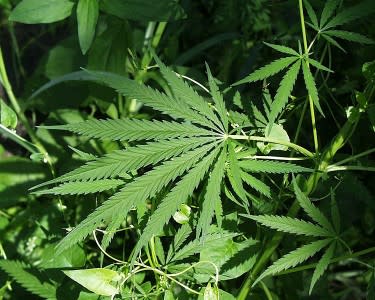Legal marijuana sales start in Colorado as issues linger
Retail marijuana stores are open for business on New Years’ Day in Colorado, the first state that has successfully legalized the controlled sale and use of recreation pot. But that doesn’t necessarily mean the cloud of legal controversy has lifted.
Source: United States Fish and Wildlife Service
Several approved retail stores planned to open on New Years’ morning in Colorado, with as many as 30 stores officially ending the prohibition on legalized marijuana in that state.
Washington state also legalized marijuana in November 2012, but it is at least six months away from having a government-controlled sales system in place.
Officials in Washington state are using their liquor control board (or LCB) to handle the legal process of making marijuana available to the public, which has turned out to be a much-slower tactic that the Colorado model- which uses a medical marijuana network that is already in place.
The Washington LCB has 3,746 applications to grow, process, or sell marijuana that it needs to weed through.
The Seattle Post-Intelligencer says that it was told by the LCB that it takes 90 days to process each application.
It also asks a question that we covered in depth last month.
“The elephant in the room when it comes to federal rules is … Will marijuana businesses be able to find banks to take their money and establish more than cash-only retail exchanges,” says the P-I’s Jake Ellison.
The issue is simple: Like any business, people going into the legal marijuana trade need access to banking services. And that would be a federal no-no under the current rules.
A meeting in Washington, D.C., in December involving the Bank Secrecy Act Advisory Group, an advisory panel first set up by then Treasury Secretary Lloyd Bentsen in 1994, was a big step in trying to address that issue. The panel, known as BSAAG, evaluates issues related to money laundering.
In August, Attorney General Eric Holder announced that the Justice Department wouldn’t criminally prosecute recreational marijuana users and state-approved growers and vendors in Colorado and Washington, after the two states passed legalization referendums in 2012.
However, marijuana is still illegal under the federal Controlled Substances Act. Holder, in his memo, established new guidelines for federal prosecutors in all states to follow for federal marijuana cases.
His decision averted one constitutional issue for now, about states that pass laws that seemingly contradict federal laws. But the banking issue remains unresolved.
BSAAG is involved because approved marijuana cultivators, producers and vendors in Colorado and Washington can’t set up legal bank accounts, because banks believe they could be implicated as money launders, since marijuana sales are still illegal nationally. And pot vendors can’t process retail credit and debit card transactions, for the same reason.
Banks want Congress to amend the Controlled Substances Act to make it clear that they can’t be punished for doing business with marijuana producers who are operating under state laws.
But Congress is unlikely to act in the short term, and with the majority of states not allowing legalized marijuana for medicinal or recreational use, it could be some time before the Controlled Substances Act comes up for debate.
Marijuana supporters say that the President also has the power under the Controlled Substance Act to change the law, and remove pot from the Schedule 1 list of drugs, without consulting Congress.
However, no one is expecting the President or Congress to directly address the banking issue in the near future.
That puts the ball back in the Treasury Department’s court with BSAAG, which could issue favorable guidelines to banks, or possibly work with the Justice Department to issue guidelines
As we head into early January, Colorado will take the first step in the legalized marijuana business, albeit on a small scale.
Among the issues the state will deal with is keeping citizens informed about where they can buy marijuana, where it can be consumed, and what the penalties are for breaking the state laws.
The issue of marijuana tourism will also get close scrutiny, with the potential for conflict as tourists may forgetfully bring back some souvenirs from the state that aren’t legal in other states.
Scott Bomboy is the editor-in-chief of the National Constitution Center.
Recent Constitution Daily Stories
Could a Supreme Court decision kill free sports, network programs on TV?
Satan worshippers denied spot next to Nativity scene
Supreme Court preview: Recess appointments and Anna Nicole Smith’s legacy



